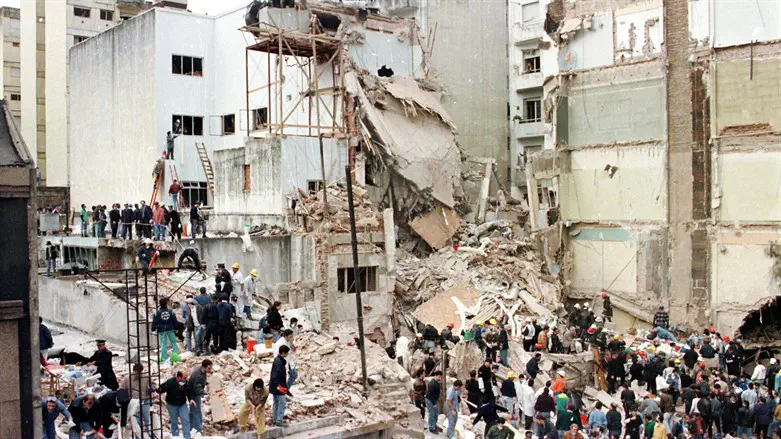
The Senate Foreign Relations Committee on Wednesday passed a resolution honoring the victims of the 1992 bombing of the Israeli Embassy in Argentina and the 1994 bombing of the AMIA Jewish Community Center, Haaretz reports.
The bombing at the Israeli embassy in Argentina killed 29 people. The AMIA attack two years later killed 85 and injured over 300.
The resolution, led by committee chair Sen. Robert Menendez and introduced in July, condemns the attacks while also reaffirming US solidarity with Argentina’s Jewish community, the largest in Latin America, as well as victims of the attacks and their families.
The resolution was co-sponsored by Democratic Sens. Ben Cardin, Tim Kaine and Chris Coons and Republican Sens. Marco Rubio and Tom Cotton. It also urges the international community to renew efforts to ensure the Hezbollah terrorists behind the attacks be held accountable.
Argentina, Israel and the United States have long accused Iranian Embassy officials in Buenos Aires of aiding the attacks with material and organizational help. Tehran has repeatedly denied the claims.
An investigation by the Mossad found that the two terrorist attacks in Argentina, which were carried out by Hezbollah terrorists, were not abetted knowingly by Argentine citizens or aided by Iran on the ground.
Israel still believes, however, that Iran approved and funded the attacks. The US government also directly ties Iran to the attacks, describing them as a “clear example of Iran’s support of international terrorism,” while noting that “high-level Iranian government officials were directly implicated in the attack, and [Hezbollah] carried it out at the direction of the Iranian regime.”
In 2012, then-Argentine President Cristina Kirchner signed a memorandum of understanding with Iran that would have established a "truth commission" to investigate the AMIA bombing.
Leaders of Argentina's Jewish community criticized the accord. An Argentine court in 2014 declared the agreement to be unconstitutional.
